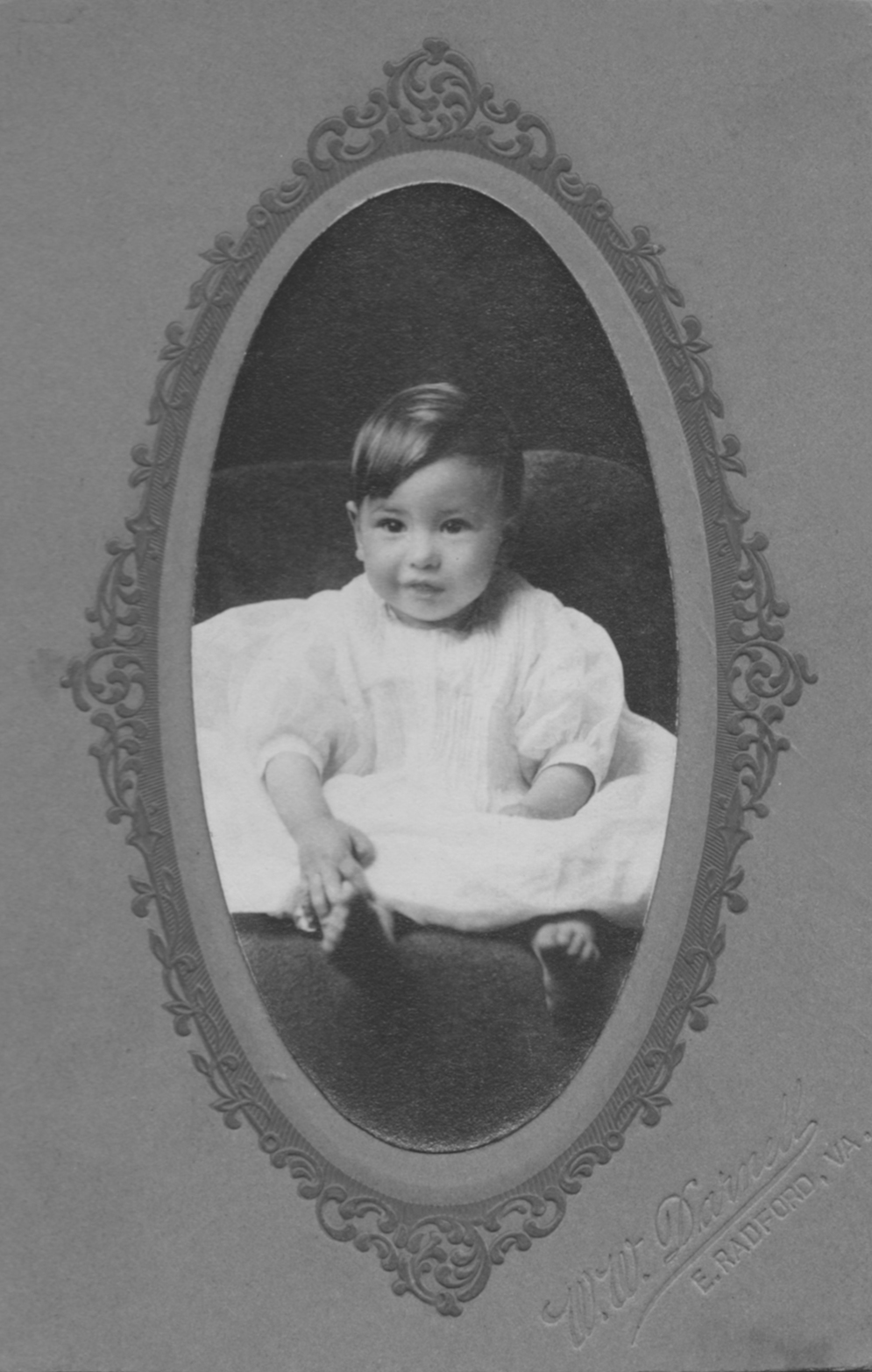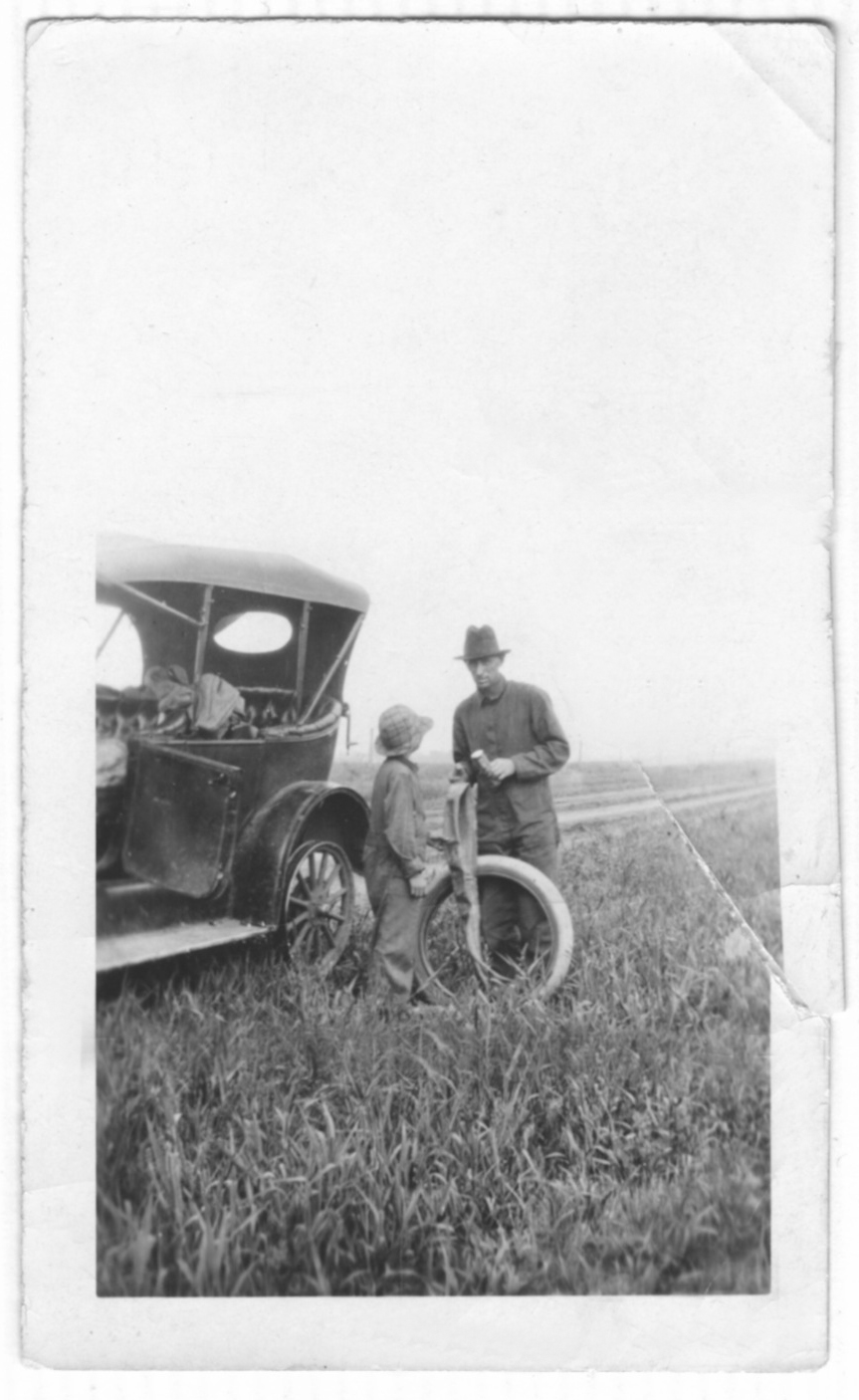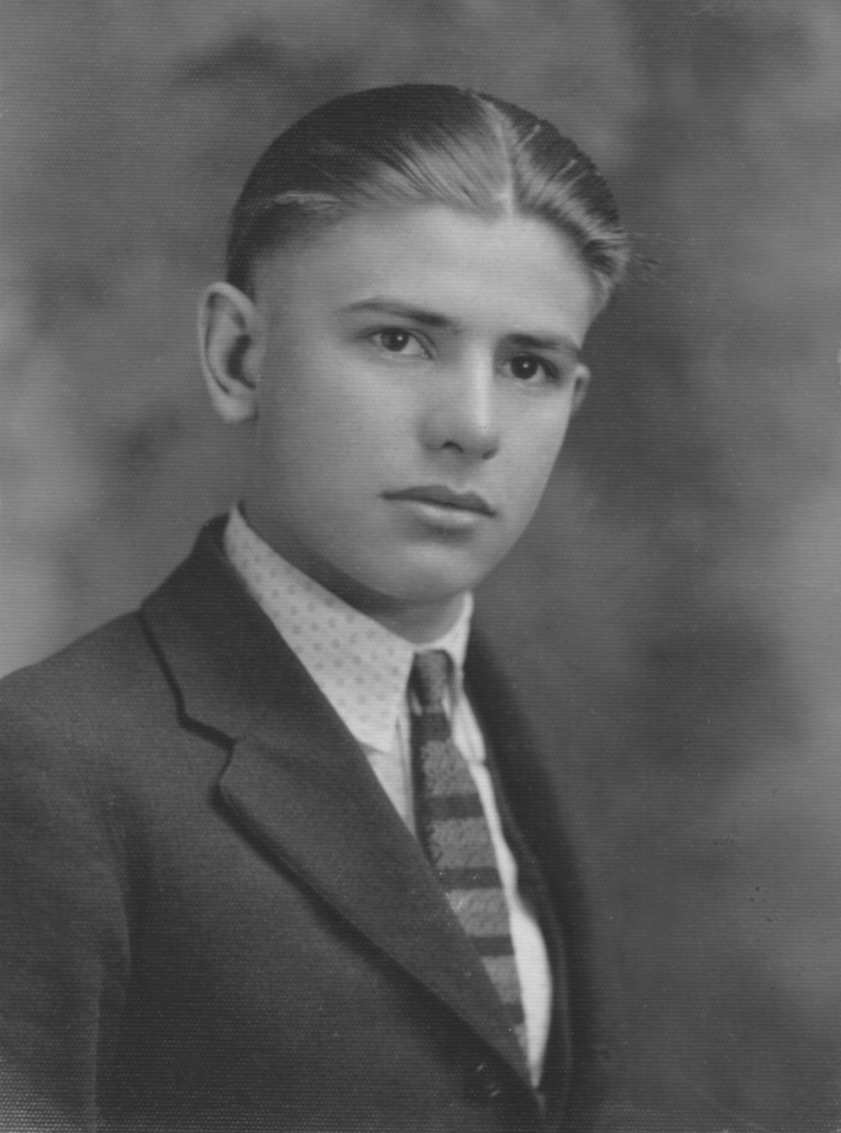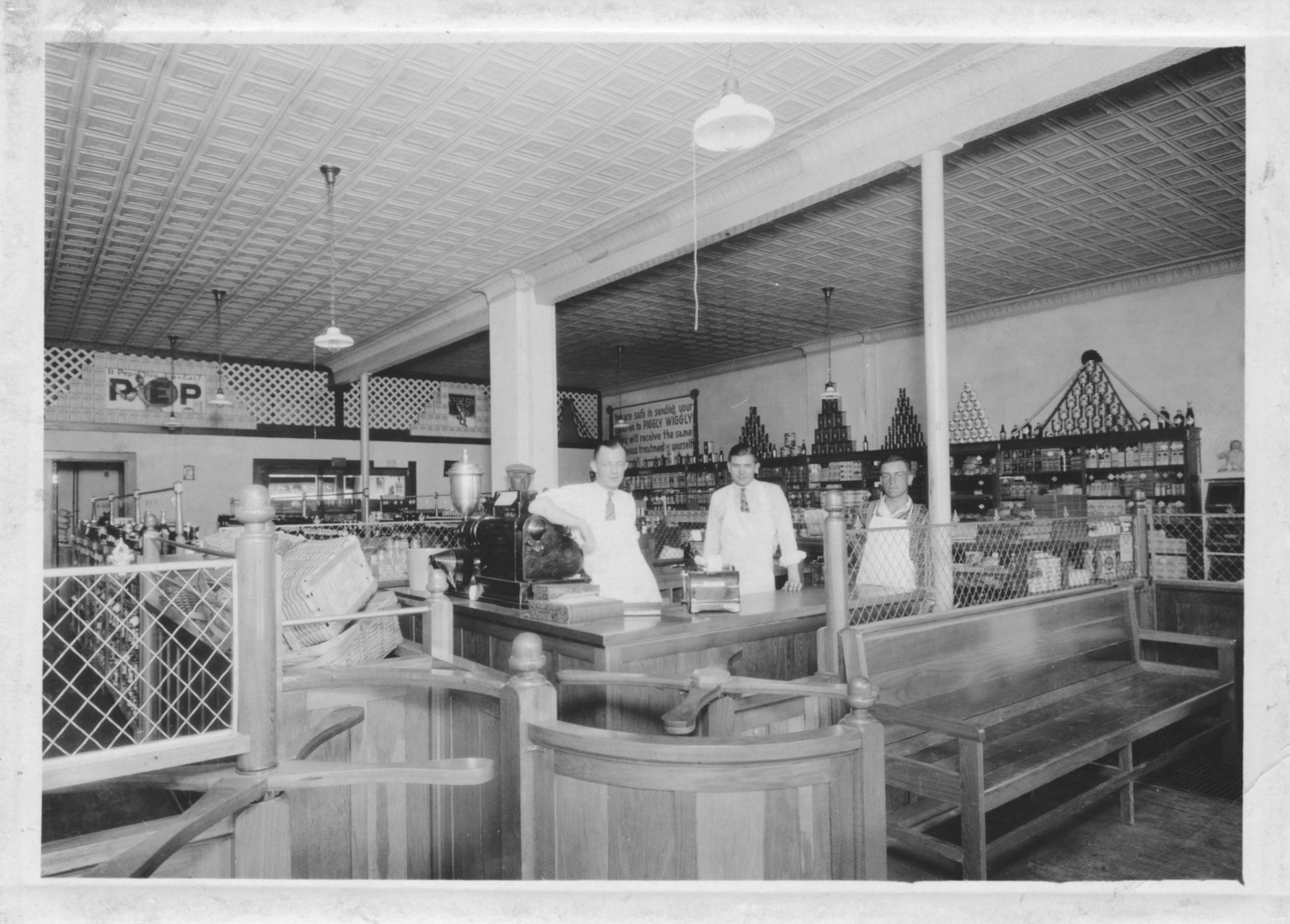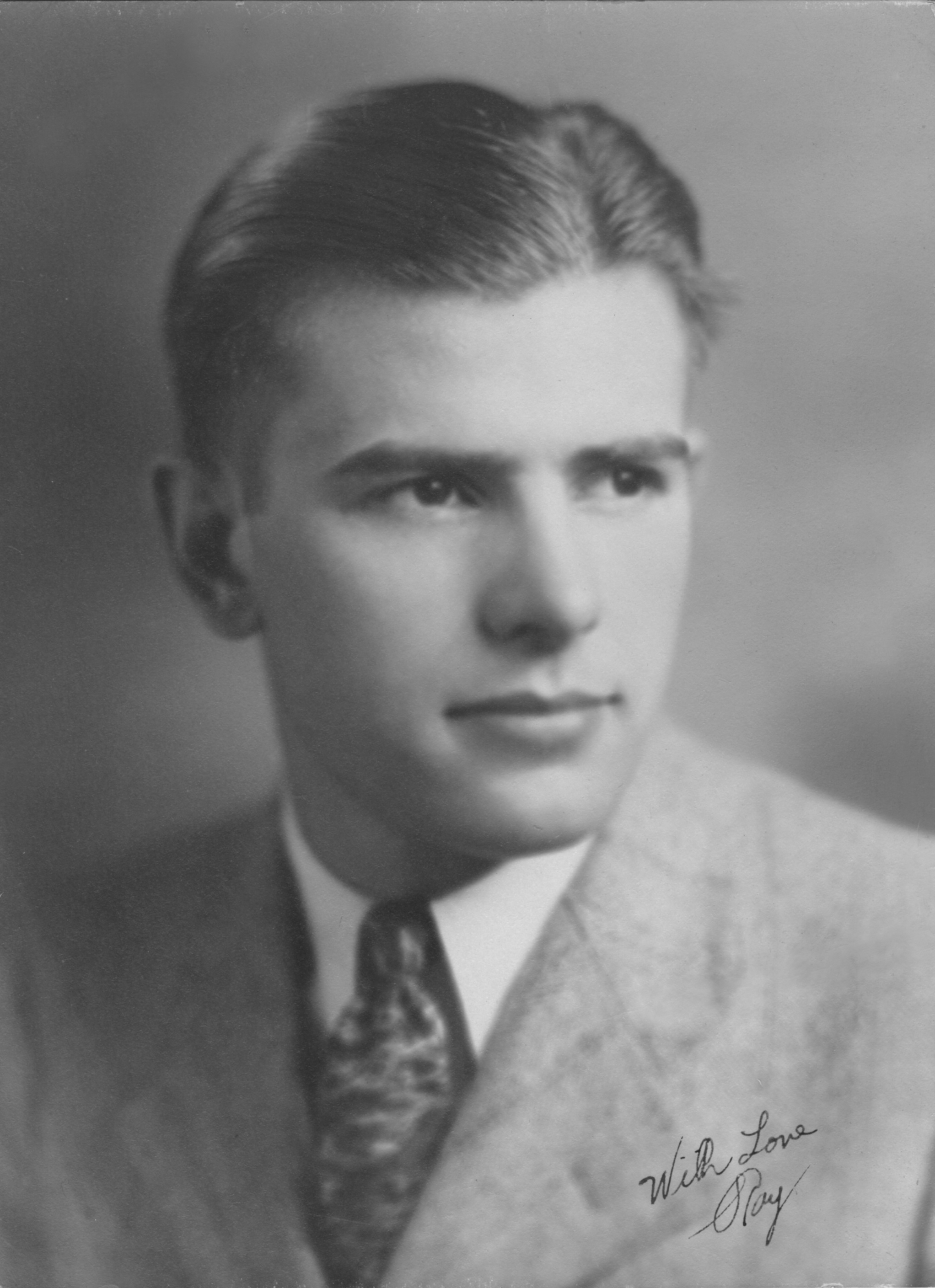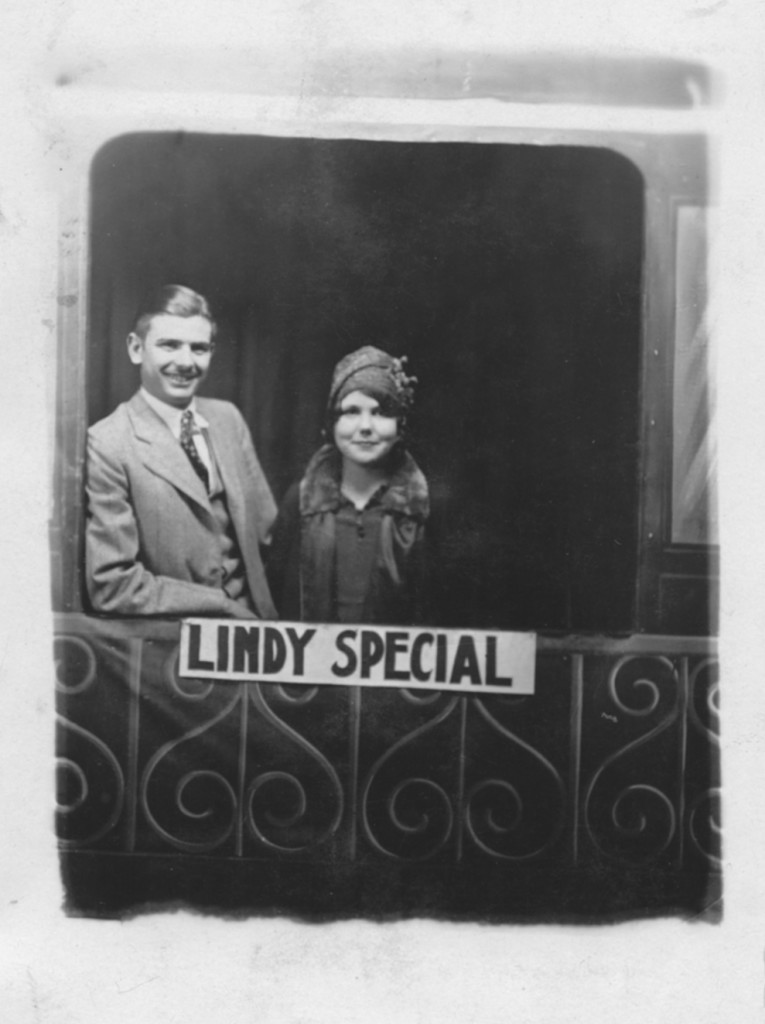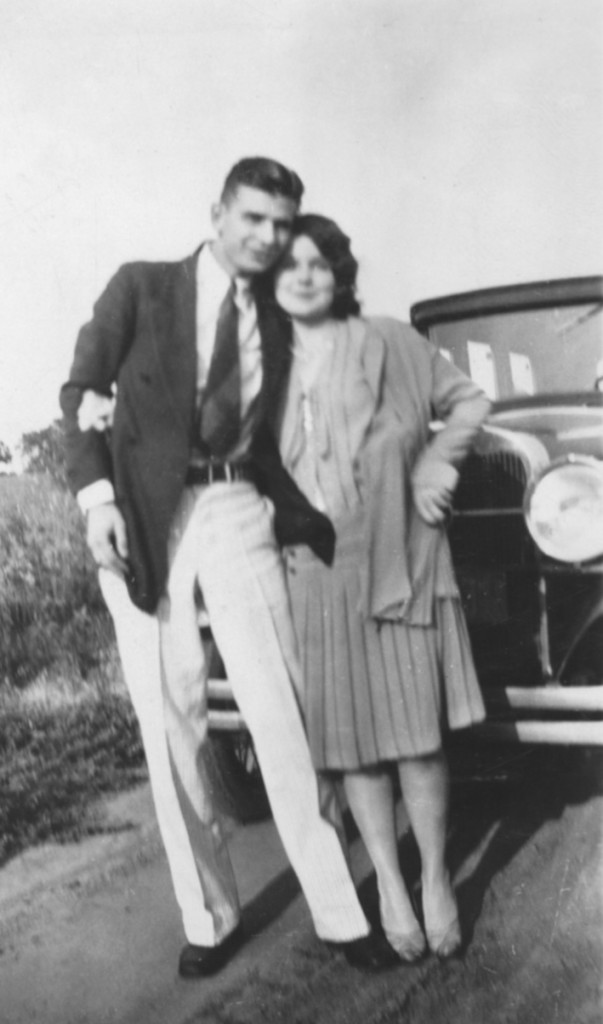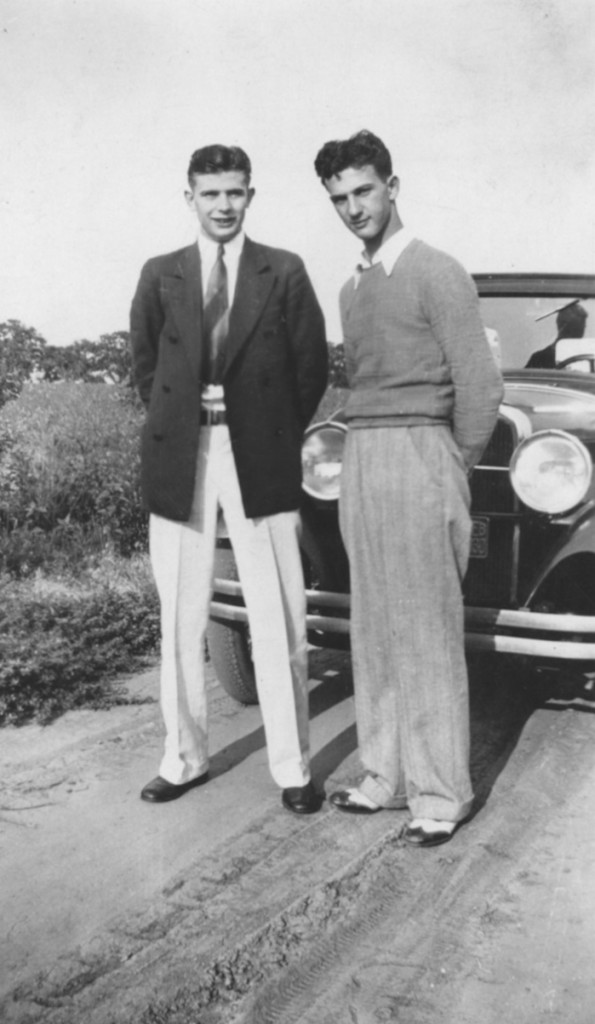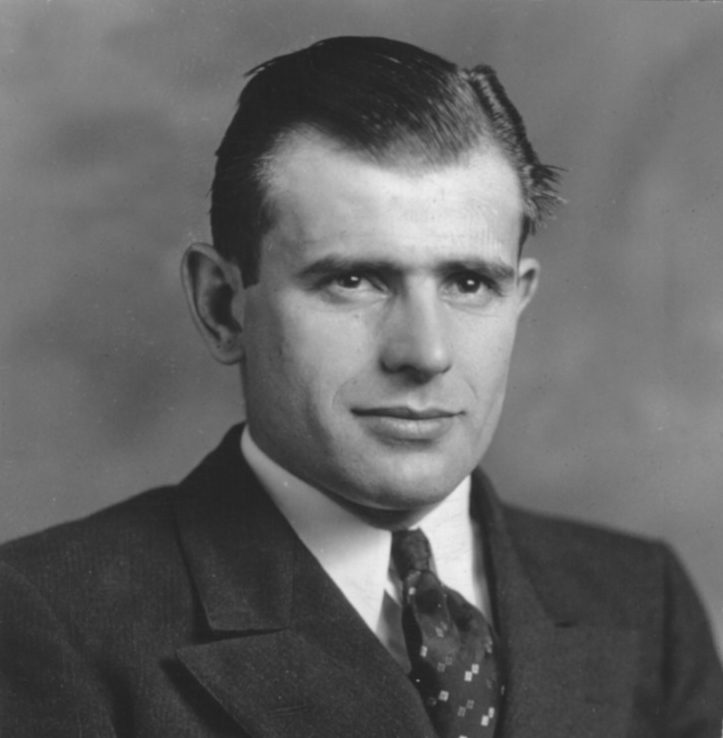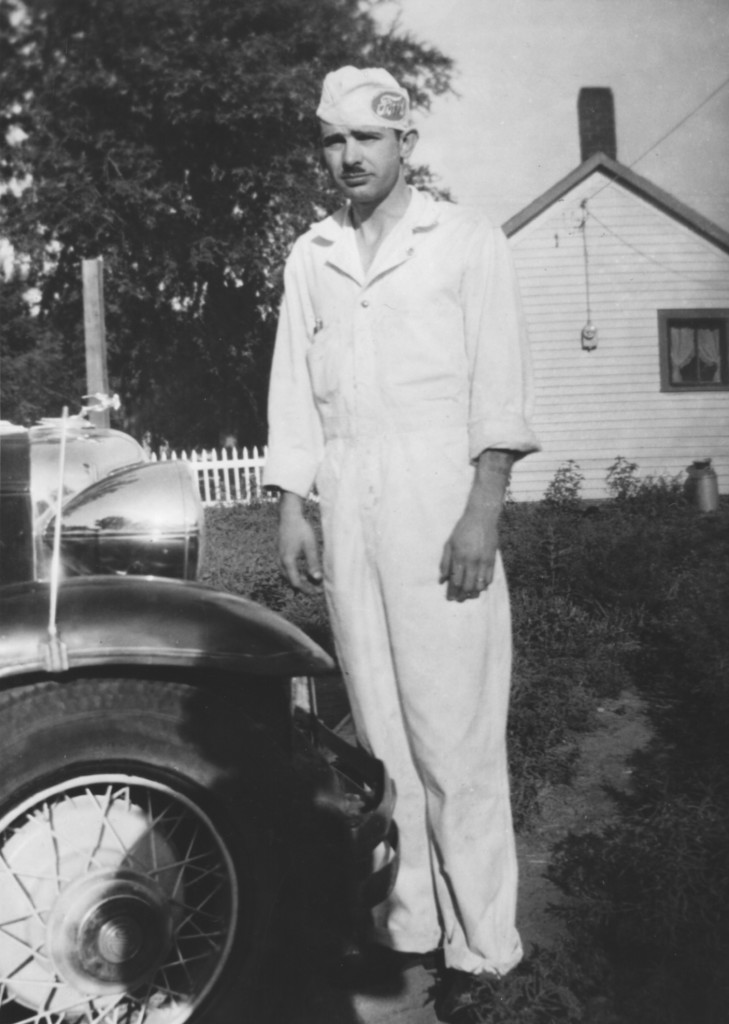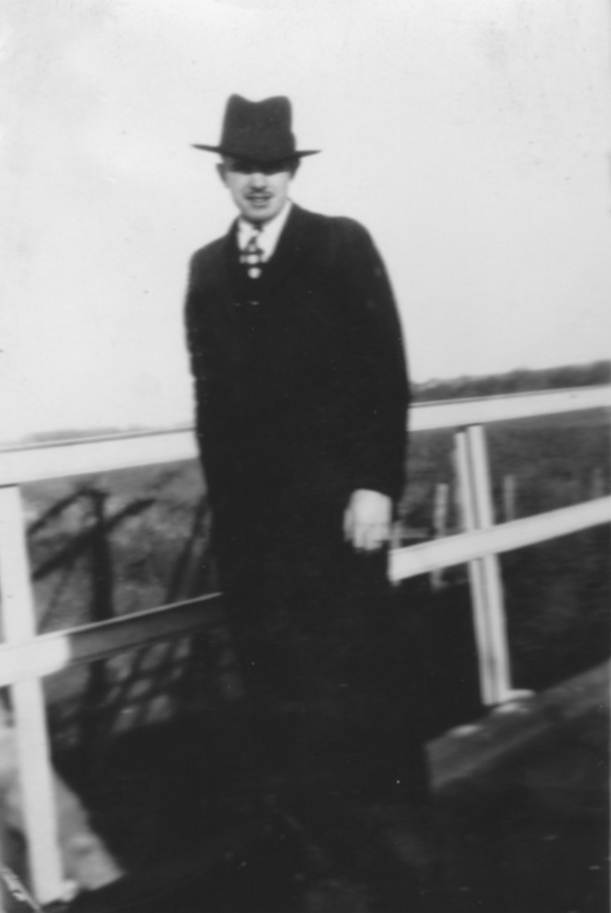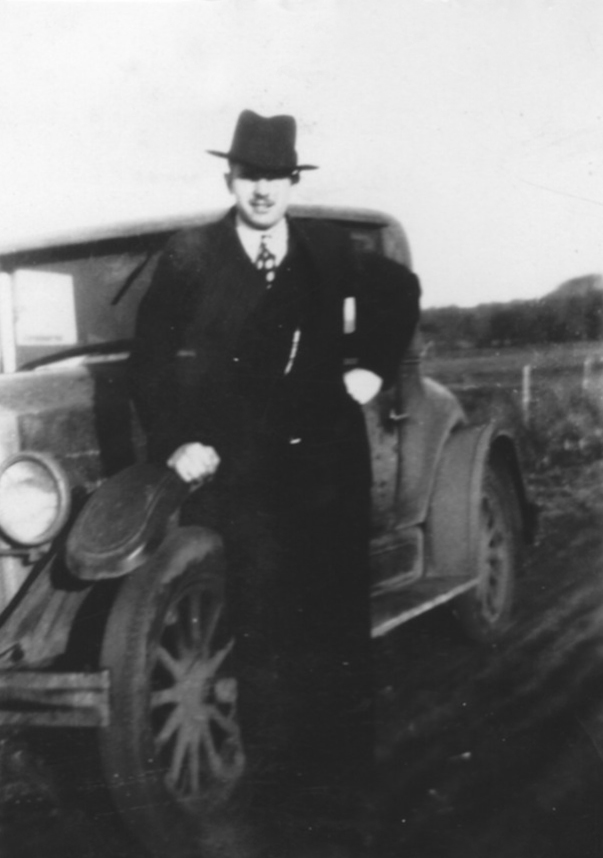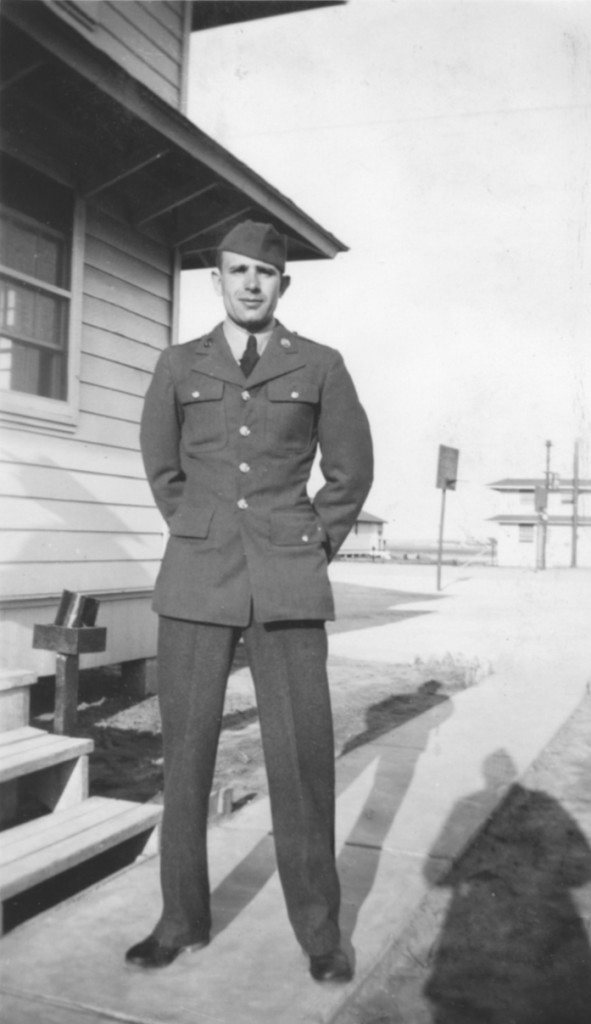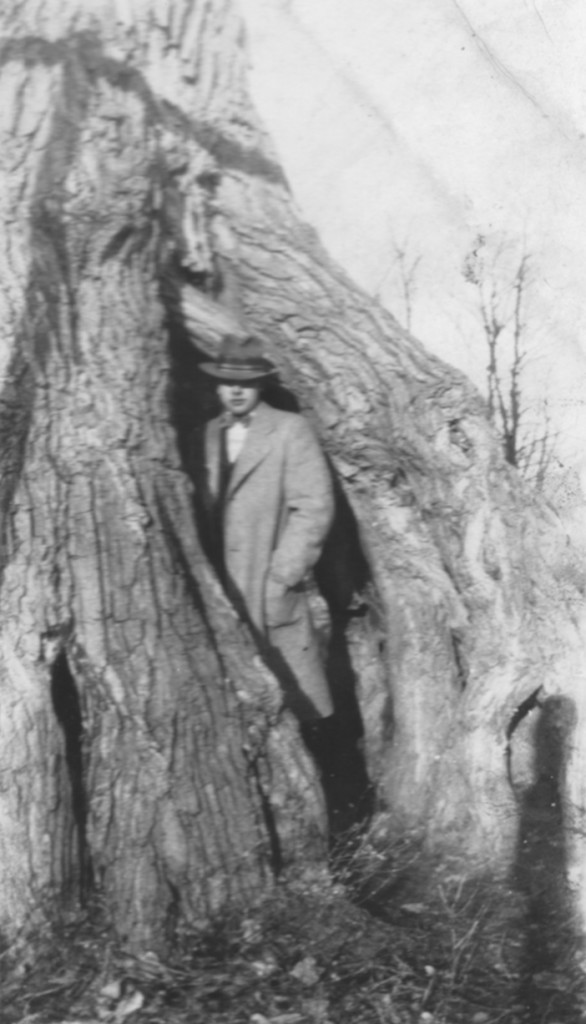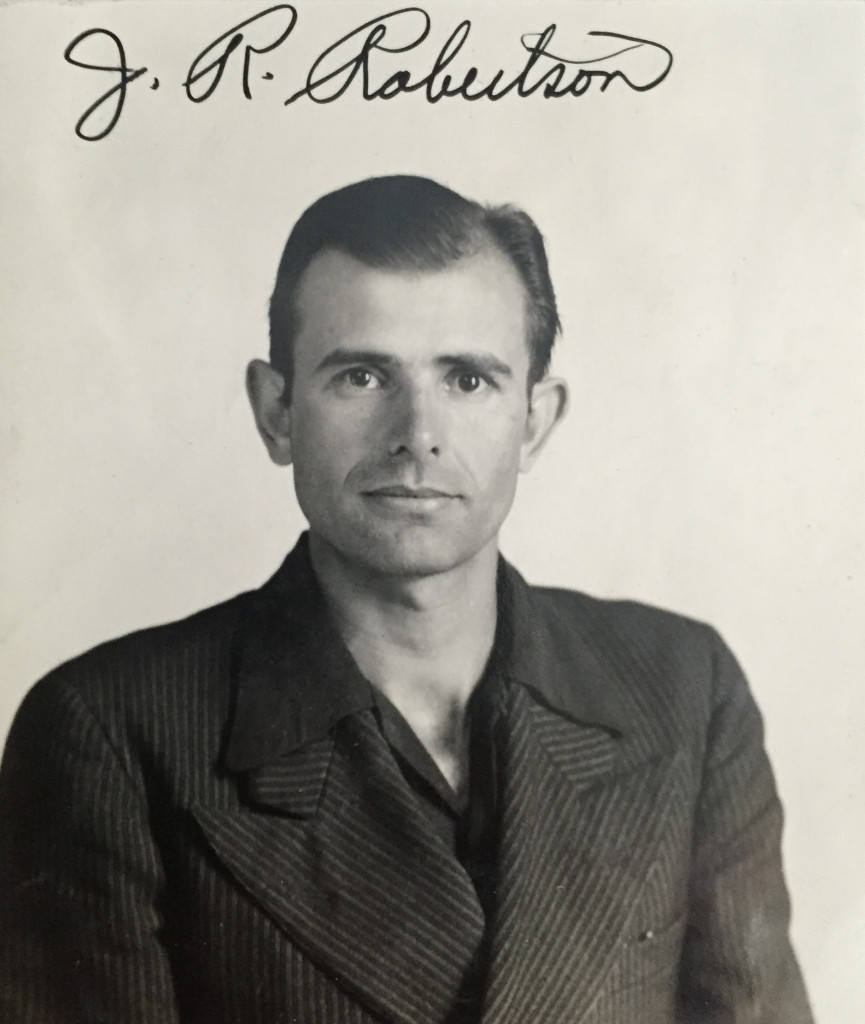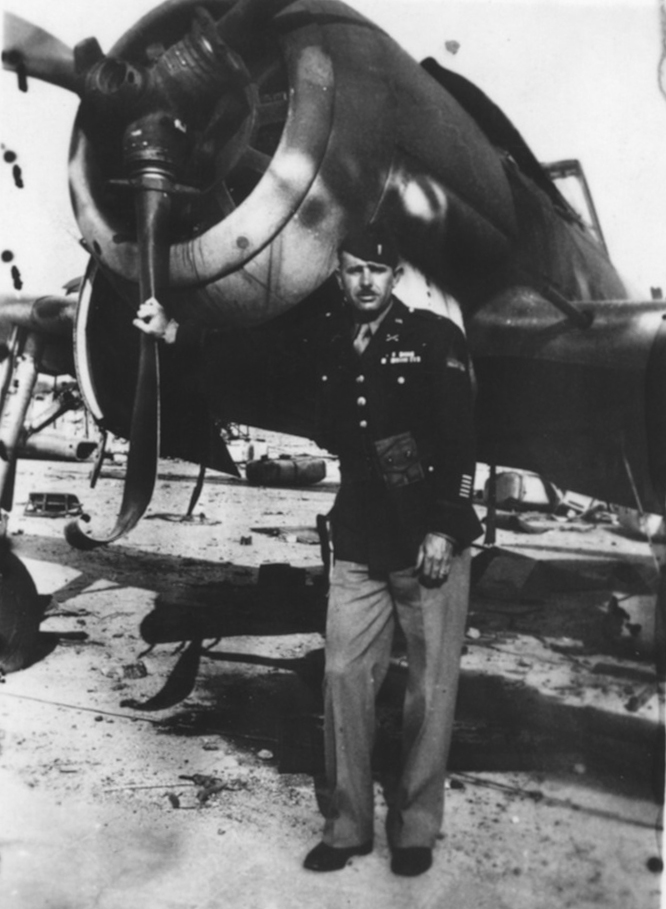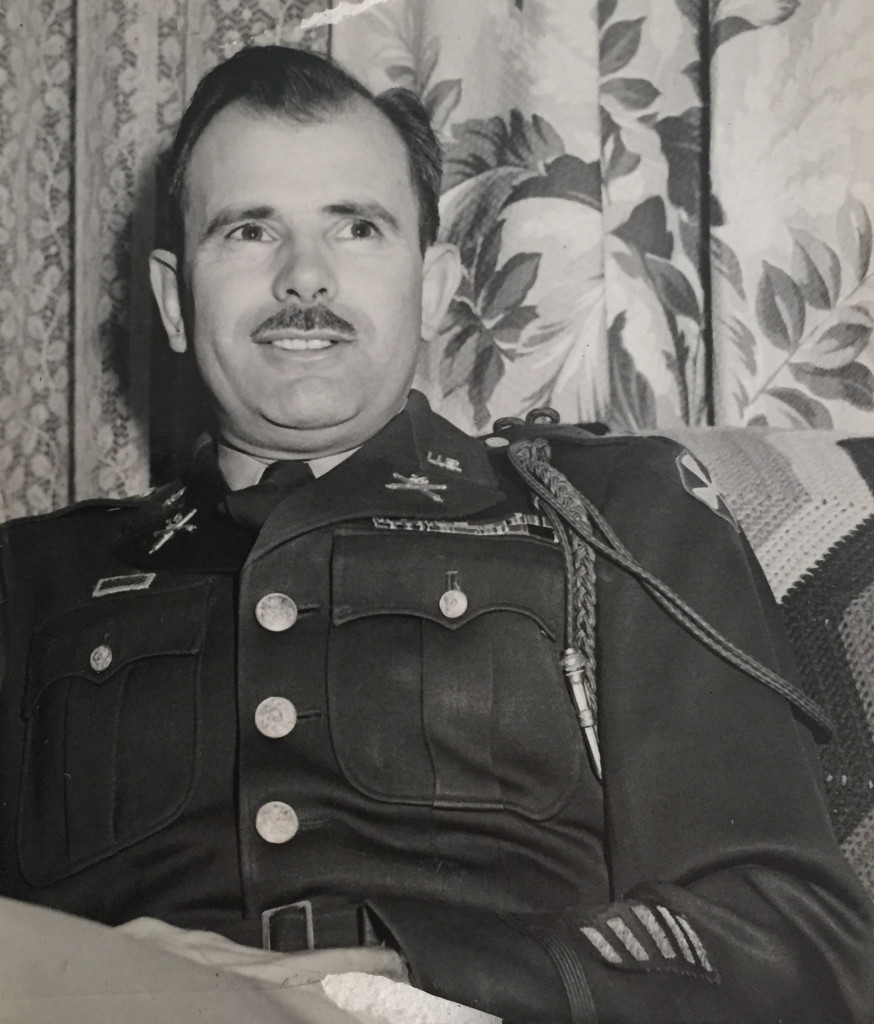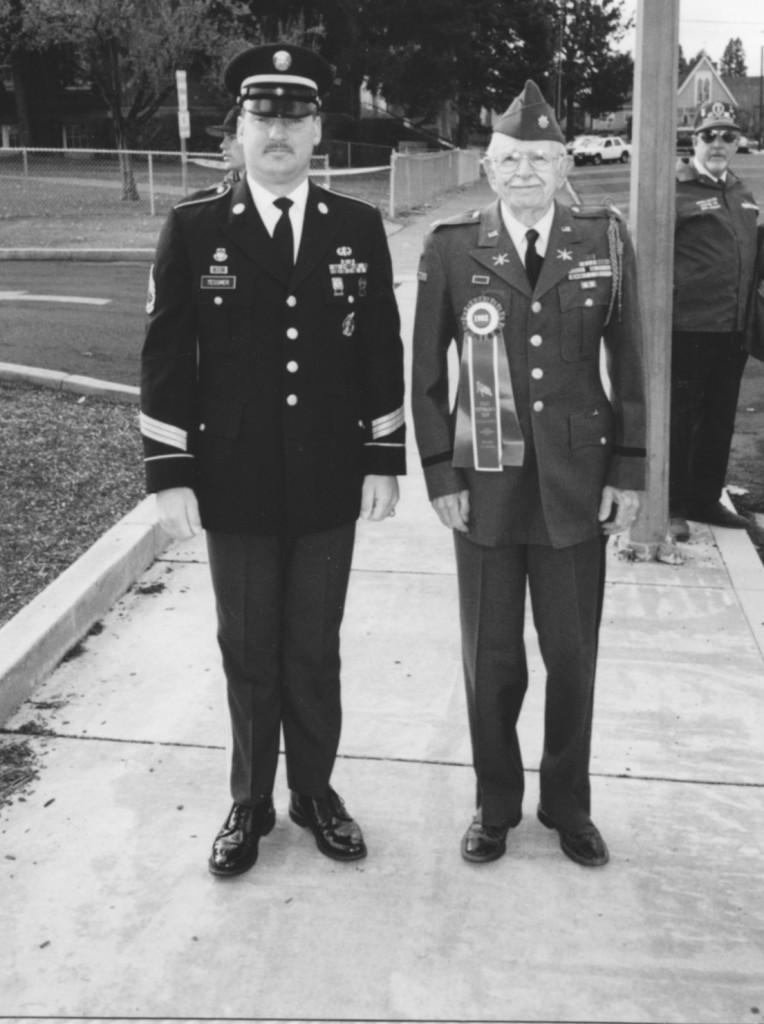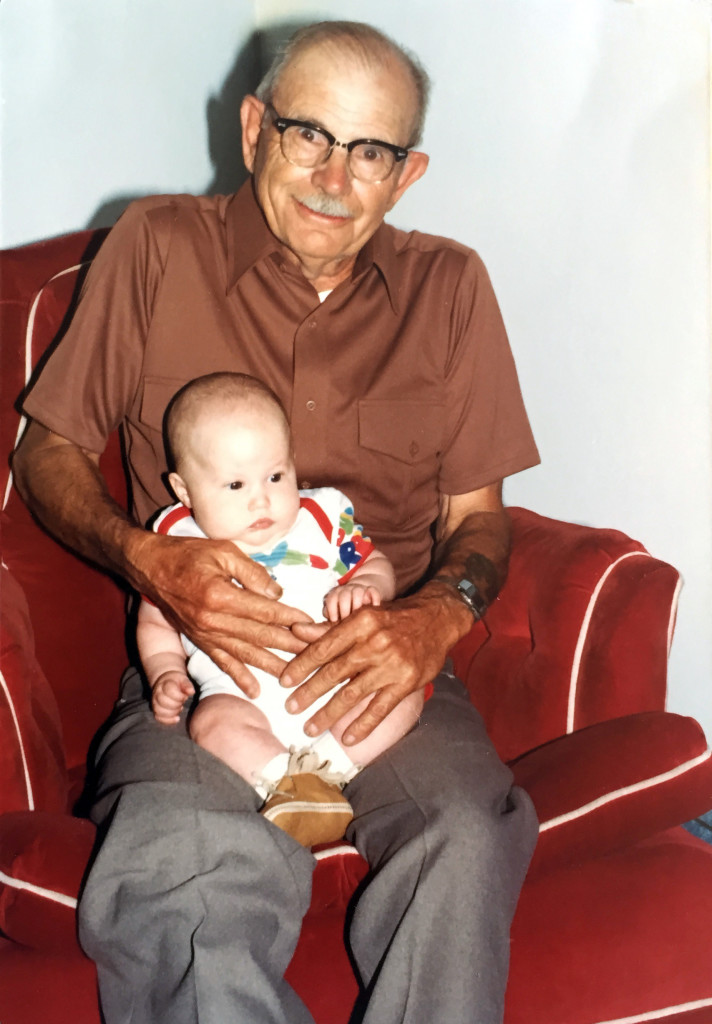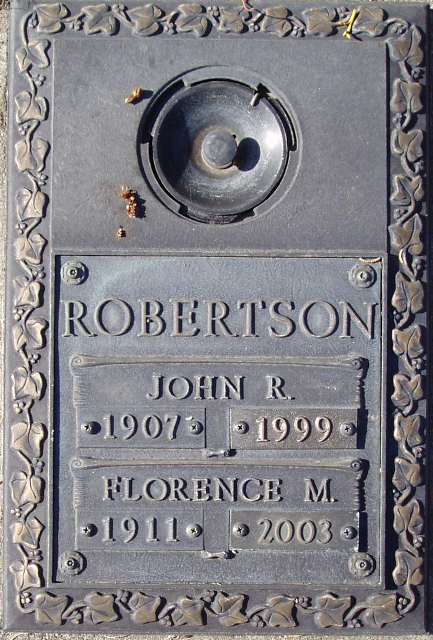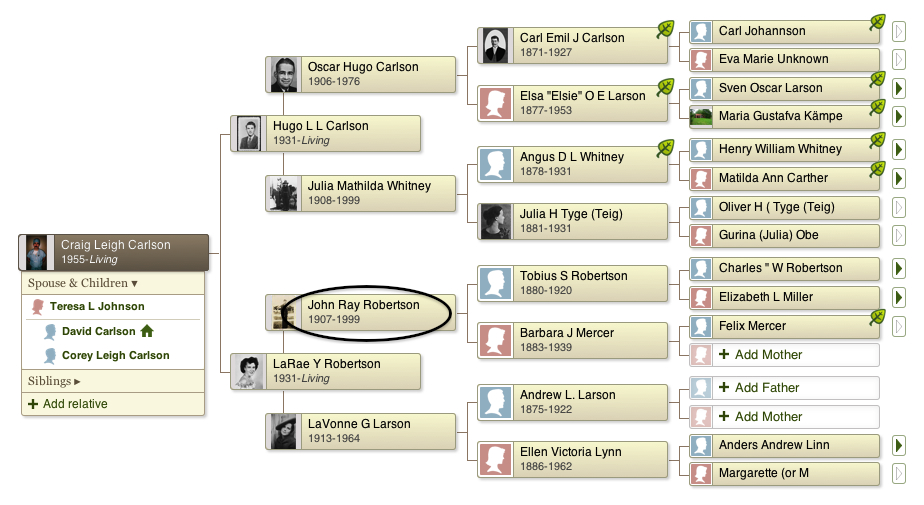John Ray “Ray” Robertson was born November 1, 1907 in Bristol, West Virginia to Tobius Sullens Robertson and Barbara Josephine “Josie” (Musser) Robertson. The family relocated to Dodge, Nebraska when he was a boy. His father died of tuberculosis in 1920 when Ray was 13 years old. His mother was forced to leave him with cousins and go to work after Tobius’s death, and Ray resented her for what he perceived to be abandonment. She eventually remarried when he was a senior in high school and relocated the family from Norfolk, Nebraska to Fremont, Nebraska.
In 1930, Ray married LaVon “Lonnie” Larson in Nebraska. They had two children, LaRae Yvonne Robertson (March 20, 1931) and LaRoi Leon “Robbie” Robertson (August 22, 1933). His daughter LaRae remembers him as a quiet, cold man. John went off to fight in World War II in 1942 and effectively abandoned his family. LaRae wrote him many unreturned letters while he was away. He returned in 1944 and asked for a divorce from Lonnie.
LaRae remembers: “My dad never said anything; he’d lay on the floor and read the funny papers and his feet stunk. My dad had a hydroponic garden, so I got my gardening genes from him. He got started gardening when he was in Japan. They fed the soldiers through hydroponic gardens in Japan, so that’s what got him interested. He was the first American into Belgium. He was a reconnaissance man in the second world war. He was shot four times. When he was in the hospital in Italy after getting shot, the second armored division was leaving for Normandy for invasion. He went AWOL so he could join his group. He said he was afraid he’d miss the whole war if he missed that. He went with the first wave into North Africa and to Sicily, then Italy, then Normandy. He crossed Germany. He fought in the Battle of the Bulge.
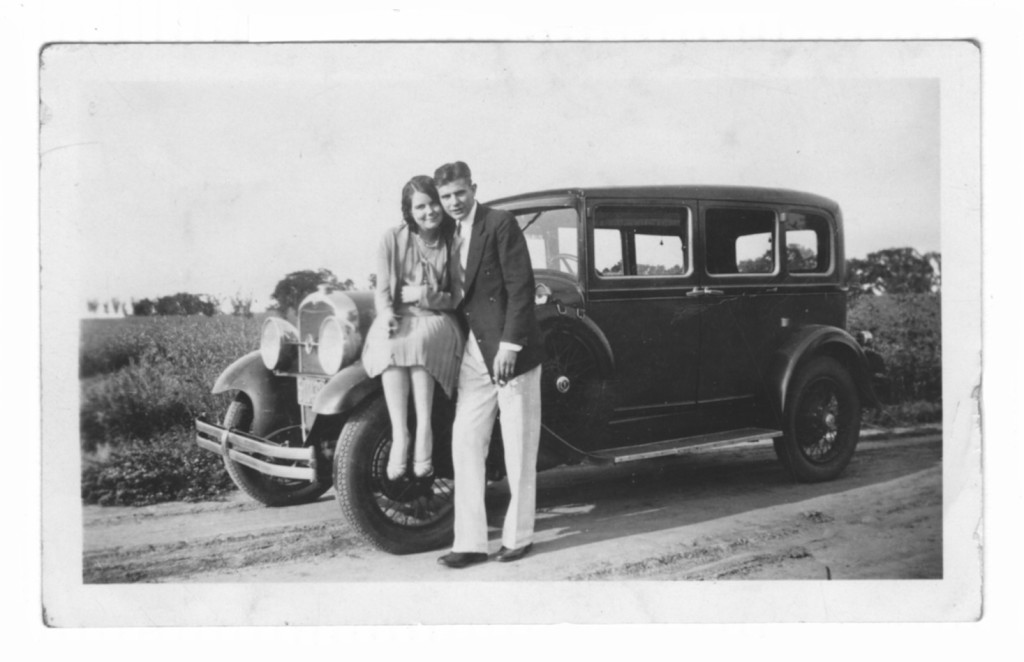 He was in a tank for ten days. He loved every minute. He has the bronze star and purple heart. He got the star because he was reconnoitering battlefield and calling in the artillery, and he was lying between some railroad tracks and the Germans couldn’t shoot him because of where he was. A colonel was watching him through binoculars, and he was awarded the star for bravery. He loved the army, and he would’ve stayed in there if he could hobble around. Before the war, he worked in grocery stores and gas stations during the depression. In East Grand Forks he managed the Bowling Alley before he enlisted in the service. He went to University of North Dakota and took an engineering course to get into the service. He was a mathematical genius probably–very strong in mathematics.”
He was in a tank for ten days. He loved every minute. He has the bronze star and purple heart. He got the star because he was reconnoitering battlefield and calling in the artillery, and he was lying between some railroad tracks and the Germans couldn’t shoot him because of where he was. A colonel was watching him through binoculars, and he was awarded the star for bravery. He loved the army, and he would’ve stayed in there if he could hobble around. Before the war, he worked in grocery stores and gas stations during the depression. In East Grand Forks he managed the Bowling Alley before he enlisted in the service. He went to University of North Dakota and took an engineering course to get into the service. He was a mathematical genius probably–very strong in mathematics.”
After the divorce, Ray moved to Texas. He remarried an Inaja girl named Florence from California that he met while he was in Japan. For a time, LaVon received child support from the military. When that dropped off, Ray never sent the family any child support. LaVon remarried–to an abusive alcoholic–and LaRae wrote to Ray in 1948 pleading for the unpaid child support. The least he could do, she said, was send money for the kids so they wouldn’t be dependent on their volatile drunk stepfather.
Instead of sending money Ray showed up to visit later that year, stopping through Grand Forks, Minnesota on his way across the country in a convertible. LaRae remembers Ray showing his kids little to no affection. He was a misogynist–during the brief visit he would speak with her (now-husband) Hugo, but the moment Hugo left the room he would go silent and have nothing to say to his own daughter.
In 1958, LaRae received a message from the Army that someone was trying to get in touch with her father. She gave them all the information that she had and attempted to reach out to him once again herself. This time Ray returned her message, speaking to her for the first time in about ten years. He had moved to Escondido, CA, to the Inaja reservation where his wife had grown up. He continued to correspond infrequently with LaRae and Robbie over the next few decades.
John died on October 26, 1999 in Bend, Oregon. He was cremated and interred at Deschutes Memorial Gardens in Bend, Oregon.
